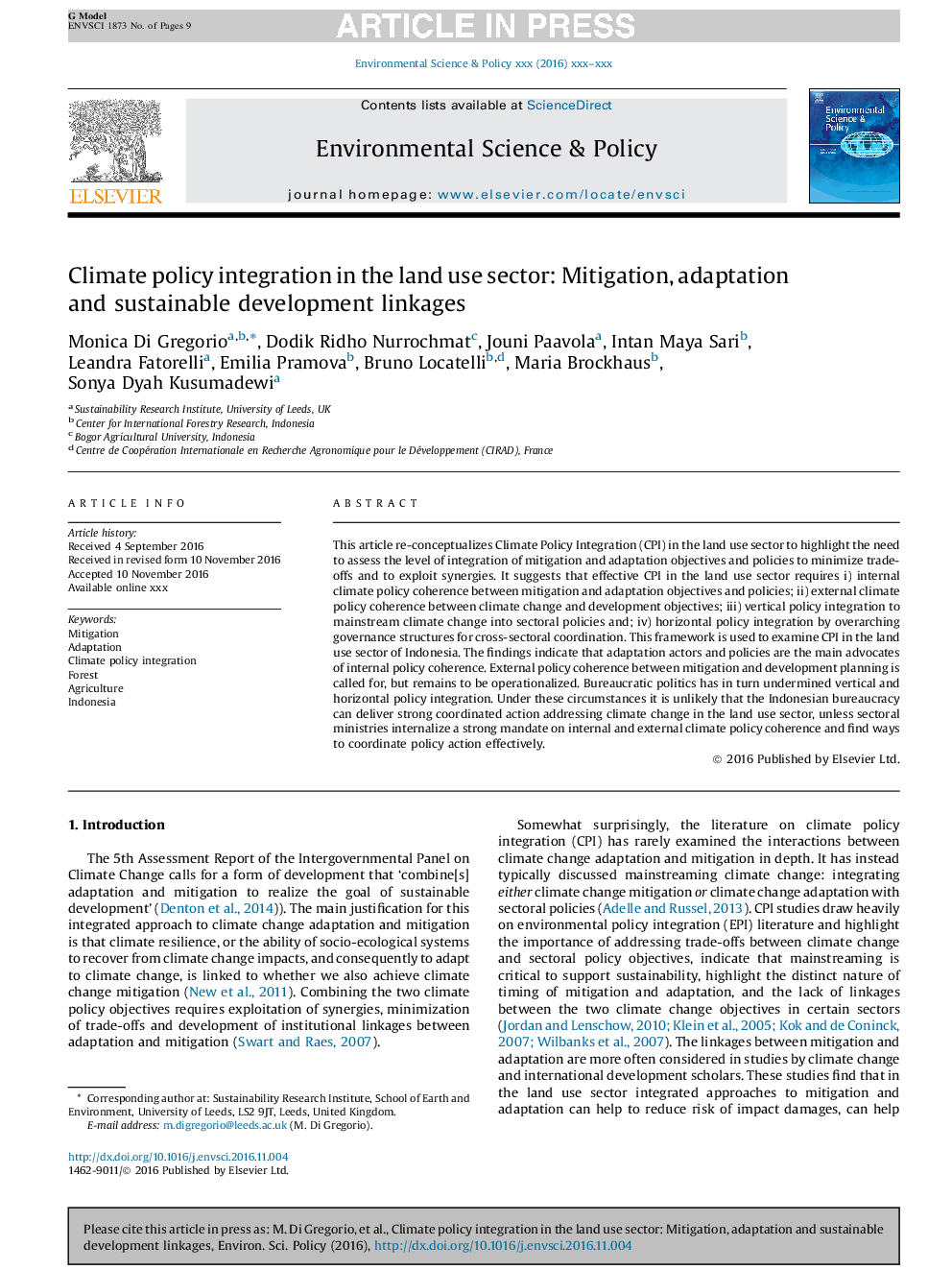ترجمه فارسی عنوان مقاله
یکپارچگی سیاست آب و هوا در بخش استفاده از زمین: ارتباطات تداخل، انطباق و توسعه پایدار
عنوان انگلیسی
Climate policy integration in the land use sector: Mitigation, adaptation and sustainable development linkages
| کد مقاله | سال انتشار | تعداد صفحات مقاله انگلیسی |
|---|---|---|
| 83837 | 2017 | 9 صفحه PDF |
منبع

Publisher : Elsevier - Science Direct (الزویر - ساینس دایرکت)
Journal : Environmental Science & Policy, Volume 67, January 2017, Pages 35-43
ترجمه کلمات کلیدی
تسکین دهنده، انطباق، یکپارچگی سیاست آب و هوا، جنگل، کشاورزی، اندونزی،
کلمات کلیدی انگلیسی
Mitigation; Adaptation; Climate policy integration; Forest; Agriculture; Indonesia;

